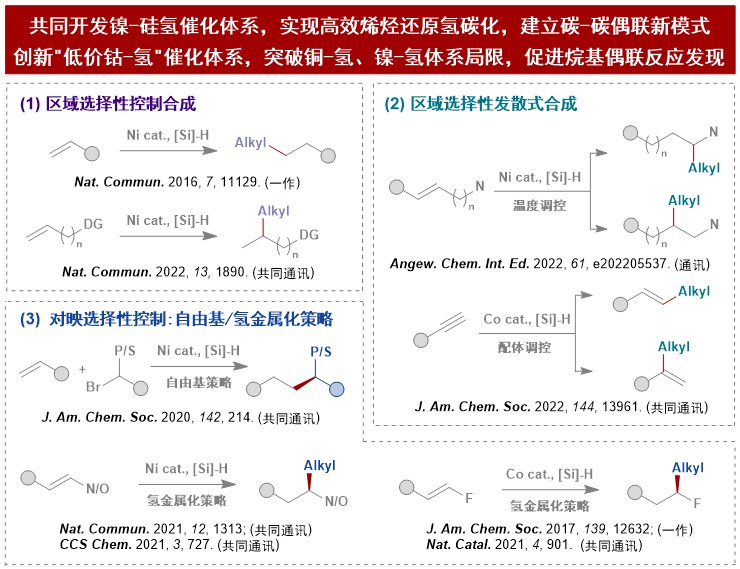 Research FieldSaturated carbon-carbon bonds are ubiquitous in organic molecules, supporting organic molecules to present a three-dimensional structure. The development of stereoselective construction strategies for saturated carbon-carbon bonds has important implications for complex molecular synthesis and retrosynthetic analysis. Highly enantioselective saturated carbon coupling under mild conditions is a straightforward but challenging method for constructing saturated carbon-carbon bonds. The difficulties include: (1) the access to alkyl coupling reagents is limited, highly dependent on highly active metal reagents, lack of commercial reagent sources, and limited functional group compatibility; (2) it is difficult to control the chirality of saturated carbon centers, and it is difficult to obtain high enantioselective products. Dr. Lu Xi is committed to developing a new reaction with high selectivity and simple steps in line with the concept of green chemistry - alkene hydroalkylation, which partially solves the key problems in the field of saturated carbon center coupling.
Dr. Xi Lu carried out metal hydride-catalyzed alkene hydroalkylation and its mechanism research, precisely controlled the regioselectivity and enantioselectivity, clarified the reaction mechanism and answered the common problems of selectivity. Specifically include: (1) create a nickel-silane catalytic system to achieve efficient olefin reductive hydrocarbonation, and establish a new carbon-carbon coupling model; (2) systematically develop a nickel-hydride catalytic system to achieve regio- and enantioselective alkene hydroalkylation; (3) innovative cobalt-hydride catalytic system, the coupling activity and selectivity are significantly different from copper-hydride and nickel-hydride systems, breaking through the limitations of traditional auxiliary groups for asymmetric cross-coupling, facilitating discovery of saturated carbon coupling reactions. |
|


